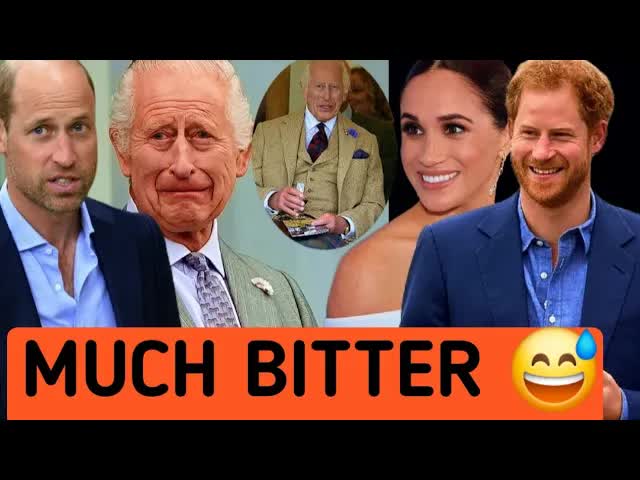In recent times, a glaring hypocrisy has emerged in the British media’s coverage of the royal family, particularly when it comes to Prince Harry.
While the press seems to have an insatiable appetite for every detail of Harry’s life, the rest of the royal family often slips quietly under the radar.
The question arises: why is this the case?
Is it simply because Harry is a royal, or is there something deeper at play?
Prince Harry has been in the public eye since birth, with every aspect of his life scrutinized by the media.
However, what we are witnessing today transcends mere royal interest; it’s an obsession.
Take, for example, Harry’s recent visit to a tattoo shop in New York.
What should have been a mundane outing turned into a media frenzy, as reporters dissected every moment of his visit.
Why do they feel the need to document such trivial events?
Is it because he dared to step away from royal duties and challenge traditions?
This relentless focus on Harry starkly contrasts with the media’s treatment of other royals, such as Prince William and Kate Middleton.
Where are the detailed reports on their public engagements or family outings?
They seem to glide through the media landscape with minimal scrutiny, while Harry faces an avalanche of attention.
This disparity raises eyebrows and suggests a troubling double standard.
The media’s fixation on Harry’s actions, from his decisions to his lifestyle choices, reveals a deeper narrative at play.
It appears that the press is more interested in crafting sensational stories rather than providing balanced coverage of the royal family.
This is not just about reporting; it’s about creating a spectacle, one where Harry is the star and the others are mere supporting characters.
When Harry stepped back from his royal responsibilities, the media was quick to pounce.
His every move became fodder for headlines, while William and Kate’s activities were largely overlooked.
This selective scrutiny is not just an oversight; it’s a deliberate choice by the media to spotlight one individual while allowing others to escape the harsh glare of public examination.
So, why this obsession with Harry?
Could it be that his choices resonate with the public, offering a narrative that defies royal norms?
Perhaps it’s his charismatic personality that draws the media in, making him a more appealing subject.
His willingness to speak candidly about mental health and his life choices creates a compelling story that captivates audiences, even if it means sacrificing privacy.
Yet, this intense focus on Harry also exposes the media’s hypocrisy.
The lack of equal scrutiny applied to William and Kate raises questions about the motivations behind such coverage.
Are they truly interested in fair reporting, or are they simply looking to stir controversy and generate clicks?
The imbalance is evident, and it speaks volumes about the media’s priorities.
As we examine the media’s treatment of Prince Harry compared to his family members, it becomes clear that this is not just a matter of preference; it’s a pattern of bias.
The press has chosen to elevate certain royals while relegating others to the background.
This selective attention not only skews public perception but also shapes the narrative surrounding the royal family.
The media’s obsession with Harry is a reflection of a broader issue within journalism: the tendency to sensationalize and manipulate narratives for the sake of engagement.
In doing so, they risk losing sight of the truth and fairness that should underpin responsible reporting.
As consumers of news, it’s essential to remain vigilant and question the motives behind the stories we consume.
In light of this ongoing scrutiny, it’s evident that the British media’s approach to royal coverage is riddled with contradictions.
The stark contrast between how Harry is treated versus other royals highlights a systemic flaw in the way these stories are reported.
This isn’t just a passing trend; it’s a significant commentary on the media landscape that warrants further discussion.
As we reflect on this issue, it’s crucial to acknowledge the implications of such biased reporting.
The media’s fixation on Harry may provide entertainment, but it also raises serious questions about accountability and integrity in journalism.
Moving forward, we must advocate for a more balanced and fair portrayal of all members of the royal family, ensuring that each individual is given the coverage they deserve.
Ultimately, the narrative woven around Prince Harry serves as a reminder of the complexities within media coverage.
It challenges us to think critically about the information presented to us and to seek out the truth amidst the chaos.
In a world where sensationalism often trumps substance, it’s vital to hold the media accountable for their choices and strive for a more equitable representation of the royal family.
